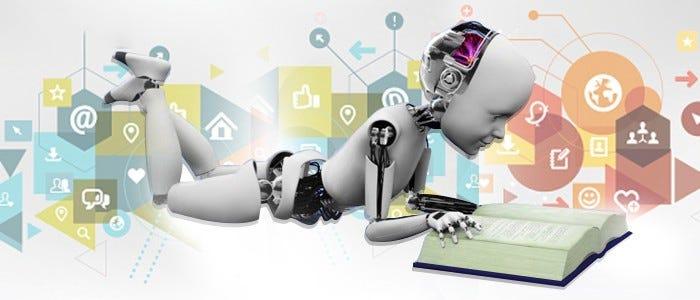Inquire
"Machine Learning in Real Life: Transforming Industries and Enhancing Everyday Experiences

Introduction
Machine Learning (ML) is no longer a concept reserved for tech enthusiasts and data scientists. It has become an integral part of our daily lives, revolutionizing industries and shaping the way we interact with technology. In this blog, we'll explore the incredible impact of ML in real life, from healthcare and finance to entertainment and personalization.
Healthcare and Medical Diagnostics
In the field of healthcare, ML is making remarkable strides. ML models analyze vast medical datasets, including patient records, medical images, and genomic data, to diagnose diseases, predict patient outcomes, and even discover new treatment options.
1. Disease Diagnosis: ML algorithms assist in early disease detection. For example, deep learning models can identify anomalies in medical images, such as X-rays and MRIs, helping radiologists spot potential health issues sooner.
2. Personalized Treatment: ML algorithms consider individual patient data to tailor treatment plans. This allows for more effective, targeted therapies, increasing the chances of successful outcomes.
3. Drug Discovery: ML accelerates drug discovery by sifting through vast chemical and biological data to identify potential candidates for new drugs and therapies.
Finance and Investment
The financial sector relies heavily on data-driven decision-making, and ML is at the forefront of this transformation.
1. Algorithmic Trading: ML algorithms analyze historical data and real-time market information to make high-frequency trading decisions, optimizing returns and minimizing risks.
2. Risk Assessment: ML models assess credit risk by examining an individual's credit history, financial behavior, and other factors, ensuring more accurate lending decisions.
3. Fraud Detection: ML detects fraudulent activities by analyzing transaction patterns and identifying unusual behaviors that may indicate fraud.
Entertainment and Personalization
In the world of entertainment, ML has become a driving force behind personalization and content recommendation.
1. Content Recommendations: Platforms like Netflix and Spotify use ML to analyze user behavior and preferences, providing personalized recommendations for movies, TV shows, music, and more.
2. Game Development: Game designers implement ML algorithms to create more dynamic, adaptable game worlds and AI opponents that adapt to a player's skill level.
3. User Experience: Social media platforms use ML for content curation, ensuring users see posts and advertisements that align with their interests.
E-commerce and Retail
ML algorithms are transforming the way we shop online, enhancing both the customer experience and business efficiency.
1. Product Recommendations E-commerce giants like Amazon employ ML to suggest products based on a user's browsing and purchase history, increasing sales and customer satisfaction.
2. Dynamic Pricing: ML algorithms analyze market trends and user behavior to set optimal prices, ensuring businesses maximize revenue.
3. Inventory Management: ML helps retailers optimize inventory levels, reducing waste and ensuring products are available when and where they are needed.

Machine Learning's influence in real life is pervasive, touching nearly every aspect of our daily existence. As ML algorithms continue to improve and evolve, we can expect even greater levels of personalization, efficiency, and convenience in our interactions with technology.
Whether you're ordering products online, receiving personalized content recommendations, or benefiting from cutting-edge healthcare diagnostics, ML is enhancing your everyday experiences. The rapid advancement of machine learning is a testament to the ever-expanding possibilities it offers, making the world more data-driven, efficient, and user-centric than ever before. As we look to the future, the transformative impact of ML in real life will only continue to grow, leading us toward a more connected, intelligent, and empowered world.

- Managerial Effectiveness!
- Future and Predictions
- Motivatinal / Inspiring
- Other
- Entrepreneurship
- Mentoring & Guidance
- Marketing
- Networking
- HR & Recruiting
- Literature
- Shopping
- Career Management & Advancement


 SkillClick
SkillClick